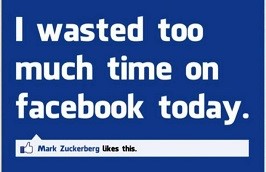You might think that I’m a broken record, bringing up Cryptowall and ransomware threats time and time again. But the truth is, I value your data and I want to make sure it is safe!
Many folks think that cloud-based syncing tools like Google Drive and Dropbox automatically and securely solve your backup needs. It seems logical, but this is a dangerous misconception! With Dropbox, you simply have ONE copy in the cloud kept to sync with your local living copy. When that copy gets infected with Cryptowall, the infected copy becomes the living copy and becomes backed up in the cloud. Dropbox really isn’t designed to go back to a previous version.
Usually you won’t even realize that you’re hit with Cryptowall until it’s too late. And in this case, too late means your Dropbox files getting completely infected before you even notice something is wrong. Even worse, your shared files can get infected—leading to network-wide infections!
continue reading
 Dynamic Edge has become quite selective in its hiring of high-quality consultants. In 2015, of 927 applicants, we hired only 27 of them. That’s only 2.7%!
Dynamic Edge has become quite selective in its hiring of high-quality consultants. In 2015, of 927 applicants, we hired only 27 of them. That’s only 2.7%!
To get a bit of context for our numbers, I decided to investigate the hiring rate of other service-based companies. I came across a statistic published by Deloitte—who considers themselves as having one of the toughest interview processes across industries. I was surprised to find out that their hiring rate was 3.5%– a number that is considered very selective within recruiting circles. What should that mean to you? That we are concerned with recruiting only the best consultants.
Just because someone has experience does not mean they can be a DynEdger. I’ve interviewed countless numbers of IT guys that just don’t care enough—people with 10 or 15 years’ experience working in an enterprise IT department that aren’t up-to-speed with the latest tech problems and innovations and people that just want a job—their hearts and heads are not in the work. Even though someone might look great on paper, our rigorous 4-step interview process makes sure that an applicant is who he or she says they are before we give out any offer.
Employees engage in all sorts of activities that waste time—excessive meetings, coworker interactions, office politics and fixing mistakes are a few that might be more or less tolerated. But according to recent survey data, the biggest culprit is surfing the world wide web! That’s a HUGE distraction—currently there are 2 zettabytes of data out online (that’s equivalent to 2 TRILLION gigabytes!!).
According to a Salary.com survey, the majority of employees regularly spend time surfing on websites unrelated to work. What’s the harm in that?
Every hour wasted has direct impact on your bottom line. Time IS Money.
continue reading
Many organizations rely solely on Windows account privileges to protect their networks. A recent security post revealed that attackers can gain control of your network by remotely modifying these privileges. This post reveals a new hack—called the ‘hot potato’—used to easily gain Administrative privileges and access to corporate networks.
How the heck can people get into your system? Well, this new ‘hot potato’ Windows hack makes it as easy as 1-2-3 for hackers to get into most corporate networks.
- Ask the network for its IP address
- Fake server proxy settings
- Authenticate a user’s credentials
To boil it down, the hackers gain access to a Windows machine and then increases their security privileges to the highest level on the machine. Then they take control of your network and start destroying your information…
continue reading
January 13, 2015. That was the date a year ago today when Microsoft terminated
its mainstream support for Windows Server 2008.
Here is the link to Microsoft’s official support schedule for Windows Server 2008.
Generally, Microsoft promises 10 years of support for business and enterprise software. This support period is split up into two periods: Mainstream Support and Extended Support.
continue reading
Do you ever wonder why businesses—credit unions, accountants, healthcare facilities—keep falling victim to malicious ransomware attacks? The reason is they simply aren’t doing enough to keep criminals out. 9 out of 10 businesses fail to have a ‘smart firewall’ to protect your team from infecting your networks with malicious viruses (think cryptowall, for example).
And even if you are training your team, what happens when someone ACCIDENTALLY clicks on a bad link or lands on the wrong webpage? Why not proactively protect your team from malicious attacks rather than solely relying on employee training to keep your business, your data and your customers safe?
continue reading



